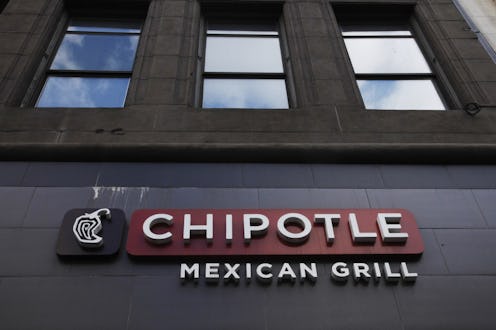News
When Will The Northwest Chipotles Open Again?
Residents of Washington and Oregon received news this past weekend scarier than any possible Halloween trick. Chipotle announced that it was closing 43 locations within the two states. The decision came as a growing number of locals began exhibiting signs of E. coli infection after eating at several of the locations. Until the investigation into the source of the contamination concludes, there's no solid word on when the Northwest Chipotles will open again.
As of Tuesday, there were 37 confirmed cases of E. coli across Washington and Oregon. Although only six locations have been connected to sick individuals, Chipotle chose to act with an abundance of caution and closed 43 locations in the Pacific Northwest. While Chipotle is believed to be the source of the E. coli, officials handling the investigation still haven't been able to fully identify where the outbreak started.
Jeff Duchin, a public health official in Seattle and King County (which has six confirmed cases), told The Seattle Times that the source of the contamination is believed to be some kind of uncooked produce, such as lettuce or cilantro. But until the culprit is identified, the Mexican food chain locations will stay closed. "Timing of reopening will be dictated by the progress and pace of the investigation," said a statement from Chipotle Communications Director Chris Arnold. "That is the top priority now."
Even though Chipotle voluntarily chose to close the locations, things still aren't looking good for the company. According to health officials, this could be Chipotle's fourth outbreak this year. The Seattle Times reported how this July, five people grew ill with E. coli symptoms after eating at a King County Chipotle. In August, a salmonella outbreak tied to tomatoes was linked to a restaurant in Minnesota, and 100 customers and clients were effected by a norovirus outbreak at a location in California.
According to health officials, the investigation is expected to last several days, so the locations are unlikely to be reopened before the end of this week — though it could take longer, as authorities interview sick individuals and the restaurant runs its own internal investigations.
Although they are hopeful that closing the locations cut off the risk of future infection, if more cases come forward, it could prolong the investigation. According to health officials, E. coli, which causes diarrhea, abdominal cramps, and vomiting, has an incubation period of three to seven days. Anyone who ate at one of the closed locations dating back to the beginning of October who has experienced these symptoms is encouraged to visit their doctor.
The good news for Chipotle is that the closed locations make up only two percent of its restaurants nationwide, and it has a large and dedicated clientele. Although stock initially dropped slightly after news of the closures, Chipotle's quick preventative measures will probably work in its favor. Hopefully, no new cases will arise, and the investigation will conclude quickly, and residents will be able to get back to their burrito bowls.
